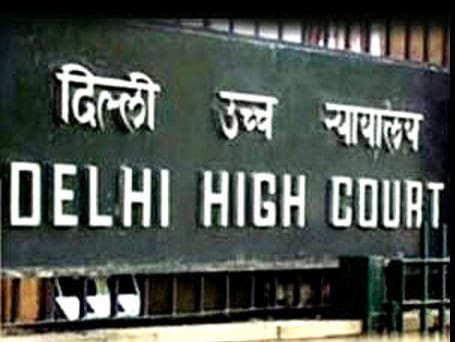Last Updated on September 4, 2021 2:02 am by INDIAN AWAAZ
HC criticises police over investigation in Delhi riots case

AGENCIES
Observing that “the sole act of protesting” cannot be used as “a weapon to justify the incarceration”, the Delhi High Court on Friday granted bail to five persons arrested by Delhi Police last year for allegedly being part of an anti-CAA protest during which Head Constable Ratan Lal sustained fatal injuries.
Justice Subramonium Prasad granted bail to Furkan, Arif, Shadab Ahmad, Suvaleen and Tabassum – three are residents of Chand Bagh and one each from Jagatpura and Mustafabad in Delhi.
While Furkan and Arif were in custody for 17 months, Shadab and Suvaleen spent 16 months behind bars. Tabassum, a mother of two children, was arrested 11 months ago. It was alleged that they were among the protesters who had assembled near the Chand Bagh area and 25 Futa Road on February 24, 2020.
Granting them bail, Justice Prasad said: “The right to protest and express dissent is a right which occupies a fundamental stature in a democratic polity, and therefore, the sole act of protesting should not be employed as a weapon to justify the incarceration of those who are exercising this right.”
While deciding the legal question — whether when an offence of murder is committed by an unlawful assembly, should each person in the unlawful assembly be denied the benefit of bail, regardless of their personal role or aim of assembly — Justice Prasad said the Supreme Court has consistently held that a clear finding needs to be given by the court regarding the nature of unlawful common object and the mere fact that accused was armed would not be sufficient to prove that.
“The applicability of Section 149 IPC, specifically read with Section 302, cannot be done on the basis of vague evidence and general allegations. When there is a crowd involved, at the juncture of grant or denial of bail, the Court must hesitate before arriving at the conclusion that every member of the unlawful assembly inhabits a common intention to accomplish the unlawful common object,” he said.
There cannot be an umbrella assumption of guilt on behalf of every accused by the court and the decision taken, he said, must be based on careful consideration of facts and circumstances of the matter.
The bench passed five judgments on the bail pleas filed by the five accused- Mohd Arif, Shadab Ahmad, Furkan, Suvaleen and Tabassum. All had been accused of participating in the rioting and attack on local residents as well as police personnel.
In the judgment granting bail to Chand Bagh resident Tabassum, who was named as “one of the main conspirators” of the rioting, as she was “responsible for managing at the stage”, the high court bench noted that she had not been identified in any CCTV footage, and had been added as an accused in the third supplementary chargesheet.
“Merely being one of the organisers of the protest as well as being in touch with others who participated in the protest is also not sufficient enough to justify the contention that the petitioner was involved in the pre-planning of the alleged incident,” noted Justice Prasad.
“The contention of the prosecution that a few women wearing burqas have been caught assaulting police officials in the Vishal Chaudhary video does not have any weight at this juncture because the petitioner cannot be identified in the video,” the judge held.
“It is the constitutional duty of the court to ensure that there is no arbitrary deprivation of personal liberty in the face of excess of State power,” the judge noted, adding that “fourth chargesheet has already been filed, and trial in the matter is likely to take a long time. This Court is of the opinion that it would not be prudent to keep the petitioner, who has two minor children, behind bars for an undefined period of time at this stage.”
For other accused as well, the court has noted that there was no direct evidence of their participation in the rioting which led to the attack on the police personnel.
“The applicability of Section 149 IPC, specifically read with Section 302, cannot be done based on vague evidence and general allegations. When there is a crowd involved, at the juncture of grant or denial of bail, the Court must hesitate before concluding that every member of the unlawful assembly inhibits a common intention to accomplish the unlawful common object. There cannot be an umbrella assumption of guilt on behalf of every accused by the court,” held the bench while discussing the bail plea filed by Furkan.
The court has noted that since the accused persons were residents of the area, CDRs placing their presence in the area were “inconclusive”.
“It is the intricate balance between securing the personal liberty of an individual and ensuring that this liberty does not lead to an eventual disturbance of public order. It is egregious and against the principles enshrined in our Constitution to allow an accused to remain languishing behind bars during the pendency of the trial,” said the court.
The bench has also noted that the accused have remained in jail for about 16 months, and a fourth chargesheet has been filed in FIR number 60/2020.
All five accused have been granted bail with the condition that they will report to the police station every Tuesday and Thursday, and will not change their address without informing the police.
